- Home
- Brian Lumley
Screaming Science Fiction Page 3
Screaming Science Fiction Read online
Page 3
“Sit down, Ray,” Durant invited, smiling, waving me into a chair. He spoke English which his accent made warm and compassionate, salving a little of the anger and frustration out of me. “And don’t worry,” he contin-ued, “I don’t intend to waste your time. I’ll get right down to it: we think there’s maybe something we can do for Andrew—if it’s at all possible.”
My heart gave a leap and I started to my feet again. “The medics have come up with something?”
Durant shook his head, pointed at the chair. Frowning, I sat. “The psychoanalysts!” I burst out again, leaning forward. “It was psychosomatic, right? Some kind of mental allergy?”
“Ray,” he said, again shaking his head, “they’re working on those things—and getting nowhere fast. And Andrew isn’t helping by making it hard for anyone to see him. So…we’re not making much progress. Not along those lines, anyway.”
I was still frowning. “So how can you help him?”
Durant looked tugged two ways; he sighed, shrugged, stroked his chin. “Personally, I think he should go back out into space again.”
I stared at him for a moment, then slumped. “We tried that,” I said, disappointed.
He ignored my expression and my answer, and said: “Way out in space.” But it was how he said it. This time there was no way I could remain seated: I jumped up, leaned forward across his desk. If Durant meant what I thought he meant…it had always been our wildest dream!
“Titan?” I finally got it out.
He nodded, and repeated himself: “Way out! Far beyond the influence of whatever it is that’s killing him. If we can get him up to Moonbase for a year…we think we may have the Titan hardware ready by then. You’ve been up on the Luna Orbiter and know how hard they’re all working up there. The Titan wheel was going to be unmanned at first, as you know, with its life-supports on green just waiting for a crew when we were ready to send them. However—” And he smiled again, and shrugged.
I took a pace back, collapsed into my chair, dazedly shook my head as a mixture of emotions flooded through me. “But…why tell me? I mean, haven’t you told Andrew?”
Now the smile, a worried one at best, left his face. “I told him last week—by letter, special delivery, a jet copter—and his answer…wasn’t satisfactory. I told him yesterday, and when he could bring himself to answer the phone I got the same response. And I’ve tried to tell him again this morning, but apparently he’s not taking calls. So maybe you’d better tell him for me.”
“Unsatisfactory?” Over everything else he’d said that one word had stuck in my mind. “His answer was unsatisfactory? In what way?”
“Ray,” Durant looked straight into my eyes, “your brother is convinced he’s going to die—of other people’s pain. He says he’s given it plenty of thought and knows there’s no way of stopping it. And he says that since it’s coming, he’d prefer it came here on Earth than out there. Going out into space would only delay it anyway, he says. So you’re his last chance. Possibly he’s already too far gone physically for the job, in which case you’ll not only have to talk him into accepting it, but also get him back up on his feet one last time. You did it before, between you, so maybe you can do it again. That’s the whole thing, and that’s why I sent for you….”
“Do my parents—?” I started, but he cut me off.
“Your parents are your parents, Ray. I know them almost as well as you do. In some respects I know them better. Andrew has forbidden them to visit him, says not to baby him and that he’s doing fine, and when he’s ready to see them he’ll turn up on their doorstep. Do you think it’s likely—or even right—that I should tell them he’s going downhill? But I have told them we might send him out to Saturn if he wants it, and that it’s up to him. Though in fact it now looks like it’s up to you. When are you seeing him?”
“Tomorrow,” I said. “As soon as I can get there. Right now, if there was any quick way.”
“There is,” he told me. “Get your things together, whatever you want to take with you, and be at the helipad in one hour. I’ll clear it and see that you’re jet-coptered over. Two and a half hours and you’re there, OK?”
And of course I said yes, that was OK….
I didn’t try to call Andrew first; it was to be a surprise, and it was. But on the way across I talked to my pilot, the one who’d taken Durant’s letter to Andrew on Perring’s Rock. “How did he look to you?” I asked him.
Josh Bertin was a Belgian and had been a jet-copter pilot for ESP as long as I’d been around; I knew him personally and he knew our history. “Andrew…wasn’t his brightest,” he answered, carefully. And, before I could quiz him further: “You know why he bought the Rock, of course?”
“Oh, yes,” I nodded. “Miles out to sea. No people. No pain. Not so much, anyway.”
Josh glanced at me out of the corner of his eye. “Yes…and no,” he said. “Oh, that’s the reason he settled there, for sure, but—”
When his pause threatened to go on indefinitely, I prompted him: “But?”
“He mentioned something you and he call the PE? Something to do with how close people were to him? Well, he told me it’s breaking down. All the way down.”
“Josh,” I was really alarmed now, “I think you’d better tell me—”
“But,” he broke in on me, “he’s coping with it—so far. Learning to live with it. All he has to do is keep telling himself it’s not real, that’s all—that the pain belongs to someone else—and then he’ll be OK. As long as nothing big happens. But right out there in the sea? Well, he’s not expecting any disasters, you know? And Ray, that’s it. No good asking me any more, ’cos that’s all he told me.”
I said nothing but simply turned over what he’d said in my mind. And while I was still turning it over, that’s when the pain hit me. Andrew’s pain—and I knew it!
It came from outside of me, slamming into me like an explosive shell and fragmenting deep inside. It was like a tankful of pain had overflowed into my guts. Someone was crushing my heart, yanking it this way and that, trying to tear it out of me. I had thought I knew what pain was, but I hadn’t. This was pain! Big Pain!
It would have driven me surging to my feet, but I was strapped in. I cried out, or gurgled, and then I must have blacked out….
When I came to Josh had slapped an oxygen mask over my nose and mouth and was shaking me. He’d switched the jet-copter to automatic pilot, and he was white as death. But as soon as I opened my eyes, dragged the mask off my face and let it fall, then he took a deep breath and climbed down a little. “Are you OK?” he said. And: “Jesus, Ray—what was all that?”
At the time I’d known what it was, but now I couldn’t be sure, didn’t want to be sure. I had thought it was Andrew, something from him that couldn’t be contained, overflowing into me. But…I didn’t even know if that was possible. Being a twin, I knew all about the so-called “Corsican Brothers” case, but nothing like that had ever happened to me (to us?) before. So…maybe it was just me. My heart? Had I been pushing it too hard?
“I don’t know what it was,” I finally answered Josh. “I’m too scared to think what it was. I only know it was pain, and that it’s gone now.”
But I didn’t tell him that something else had gone, too, something which I hadn’t even been aware of until suddenly—right there and then—I no longer had it. It had been a warm feeling, that’s all. A feeling that there was something out there other than what I could see, feel and touch. A sure knowledge that the universe was bigger than me. Now that I’d lost it I knew that it had been something greater than merely “I think, therefore I am.” Perhaps it had been “we think….” But now there was just an emptiness, with nothing out there at all except the world and all of space and all the other stars and worlds in it. And for the first time in my life I experienced loneliness. Even with someone right there beside me, I was lonely….
It was mid-September, still warm but very soggy, and fog lay like a milky shroud on the ocean w
here Perring’s Rock stuck up like a partly clenched fist from the grey surging water, its lighthouse index finger pointing at the leaden sky. Perring’s Rock was the sloping acre and a half plateau of some drowned mountain, rising seventy or eighty feet out of the sea with the lighthouse built at the highest point of the slope. There was something of a tiny scalloped bay and beach to the west, away from our approach path, and a flat area on our side of the lighthouse picked out with typical helipad patterns.
Like ninety per cent of all lighthouses the Rock had been abandoned since before the turn of the century, when super high-tech Radar, Skyspy and the W-sats had put them out of business for good. But the way they’d built this one, the sea wasn’t going to claim it for a long time still to come. And desolate? The place looked about as lonely as I now felt. Except as we landed I saw that it wasn’t, or saw something which caused me to think that it wasn’t.
It was Andrew himself!—leaning over the rail of the lighthouse’s circular balcony or platform, waving to us through the blast from our fans as we came down. Then I was free of my straps and sliding the cabin door open, out of my seat and down under the rotors before they’d even nearly stopped turning, and running up the rock-carved steps to pause at the foot of the tower. And there was my brother up top, still leaning on the rail high overhead, his shirt-sleeves flapping in a breeze sprung up off the sea. Except…he wasn’t looking down at me at all but at something else. And he was so still, so very still there at the rail. Not so much leaning on it, I now saw, as propped up by it.
I was inside and up the steps three at a time; and no need to worry now about the state of my heart for I was galvanized, my actions electric, supercharged! Yanked aloft by a fear and a pain beyond physical pain, I hurtled up those steps, while from behind and below me Josh Bertin’s cry followed despairingly from the well of the corkscrew: “Ray!…Ray…!’
Up to the old lamp room I swept, and on up its iron ladder and through the open trapdoor on to the flat, circular roof. And there was Andrew clinging to the iron three-bar safety rail—or rather hanging on it. One foot had slipped through and jammed there, dangling in space, and the other leg was bent at the knee, propping him against an upright. His left arm lay loosely along the top rail, while his opposite shoulder and arm lolled stiffly across it, supporting his weight. With his shirt-sleeves flapping like that and his head on one side, he looked like…like a sorry scarecrow fallen from its cross. And I saw that I was right and he hadn’t in fact been looking at us as we came in but at something else, down on the beach—as he’d blindly stared at it ever since his final, killing pain had reached out to me and knocked me out during the flight.
The mist had curled away a little and now I too could see it there on the narrow shingle strand. A beached whale, with three great, deep crimson slashes across its spine where some liner’s screw had broken its broad back!
The blood was still pumping, though very sluggishly now, sporadically; overhead the gulls wheeled and cried their excitement, like vultures waiting for the last spark to flicker low and expire; out at sea a cow and her calf stood off and spouted, and it seemed to me that over and above my own pain I could feel something of theirs, too.
…Until, like ice-water down my back, there dawned the realization that I could actually feel it, and finally I knew that I was compensating for Andrew’s loss….
That was three months ago and since then…I’ve thought about it a lot up here, where there’s plenty of time and space to think. And my thoughts have been diverse.
I watch the curving reef which is Japan appear at the rim of the mighty Pacific, and as it slides closer I can point a trembling finger at the very bay where in these same moments of time the dolphins are still being slaugh-tered in their thousands. I feel the outward rush of human agony as bombs explode in Zambia, while the African continent slips by so distantly beneath my observation ports that my eyes see nothing but its beauty. A million babies are born and their mothers cry out, and a million men die—but they only feel their own pain while I feel something of all of it. And with every revolution I feel more.
Nine months to go, and Saturn is waiting for me out there beyond the pain of the world. But now and then I ask myself: will the wash from the world one day reach out to me even there? Or will I have moved on, outwards to the stars, before then?
Sometimes I wonder: are there other men or beings out there, in the stars?
And sometimes I pray there are not….
The Strange Years
Seven years before “The Man Who Felt Pain,” this next story had also made its debut in Fantasy Tales (Spring, 1982). Now, I’ve always had a weird fascination for the Attack of the What-the-Hell-Ever subgenre of stories, whether it’s body-snatchers or fifty-foot women or killer tomatoes, so sooner or later I knew I was going to have to have a go at it too. And let’s face it, there had been some very strange years in the late 1970s. Anyway, Steve Jones—one of the editors and the guiding light of England’s most prestigious, best-remembered fantastic magazine at that time—Steve called “The Strange Years” “an apocalyptic jewel,” about which I was well pleased. But the story may even in its way have been a little prophetic, too. Because truth to tell there’s been some even stranger, far more malicious years since….
He lay face-down on the beach at the foot of a small dune, his face turned to one side, the summer sun beating down upon him. The clump of beachgrass at the top of the dune bent its spikes in a stiff breeze, but down here all was calm, with not even a seagull’s cry to break in upon the lulling hush, hush of waves from far down the beach.
It would be nice, he thought, to run down the beach and splash in the sea, and come back dripping salt water and tasting it on his lips, and for the very briefest of moments be a small boy again in a world with a future. But the sun beat down from a blue sky and his limbs were leaden, and a great drowsiness was upon him.
Then…a disturbance. Blown on the breeze to climb the far side of the dune, flapping like a bird with broken wings, a slim book—a child’s exercise book, with tables of weights and measures on the back—flopped down exhausted in the sand before his eyes. Disinterested, he found strength to push it away; but as his fingers touched it so its cover blew open to reveal pages written in a neat if shaky adult longhand.
He had nothing else to do, and so began to read….
“When did it begin? Where? How? Why?
“The Martians we might have expected (they’ve been frightening us long enough with their tales of invasion from outer space) and certainly there have been enough of threats from our Comrades across the water. But this?
“Any ordinary sort of plague, we would survive. We always have in the past. And as for war: Christ!—when has there not been a war going on somewhere? They’ve irradiated us in Japan, defoliated us in Vietnam, smothered us in DDT wherever we were arable and poured poison into us where we once flowed sweet and clean—and we always bounced right back.
“Fire and flood—even nuclear fire and festering effluent—have not appreciably stopped us. For ‘They’ read ‘We,’ Man, and for ‘Us’ read ‘the world,’ this Earth which once was ours. Yes, there have been strange years, but never a one as strange as this.
“A penance? The ultimate penance? Or has Old Ma Nature finally decided to give us a hand? Perhaps she’s stood off, watching us try our damnedest for so damned long to exterminate ourselves, and now She’s sick to death of the whole damned scene. ‘OK,’ She says, ‘have it your own way.’ And She gives the nod to Her Brother, the Old Boy with the scythe. And He sighs and steps forward, and—
“And it is a plague of sorts; and certainly it is DOOM; and a fire that rages across the world and devours all…Or will that come later? The cleansing flame from which Life’s bright phoenix shall rise again? There will always be the sea. And how many ages this time before something gets left by the tide, grows lungs, jumps up on its feet and walks…and reaches for a club?
“When did it begin?
“I remem
ber an Irish stoker who came into a bar dirty and drunk. His sleeves were rolled up and he scratched at hairy arms. I thought it was the heat. ‘Hot? Damned right, sur,’ he said, ‘an’ hotter by far down below—an’ lousy!’ He unrolled a newspaper on the bar and vigorously brushed at his matted forearm. Things fell onto the newsprint and moved, slowly. He popped them with a cigarette. “’Crabs, sur!’ he cried. ‘An’ Christ!—they suck like crazy!’
“When?
“There have always been strange years—plague years, drought years, war and wonder years—so it’s difficult to pin it down. But the last twenty years…they have been strange. When, exactly! Who can say? But let’s give it a shot. Let’s start with the 70s—say, ’76?—the drought.
“There was so little water in the Thames that they said the river was running backwards. The militants blamed the Soviets. New laws were introduced to conserve water. People were taken to court for watering flowers. Some idiot calculated that a pound of excreta could be satisfactorily washed away with six pints of water, and people put bricks in their WC cisterns. Someone else said you could bathe comfortably in four inches of water, and if you didn’t use soap the resultant mud could be thrown on the garden. The thing snowballed into a national campaign to ‘Save It!’—and in October the skies were still cloudless, the earth parched, and imported rainmakers danced and pounded their tom-toms at Stonehenge. Forest and heath fires were daily occurrences and reservoirs became dustbowls. Sun-worshippers drank Coke and turned very brown….
“And finally it rained, and it rained, and it rained. Wide-spread flooding, rivers bursting their banks, gardens (deprived all summer) inundated and washed away. Millions of tons of water, and not a pound of excreta to be disposed of. A strange year, ’76. And just about every year since, come to think.

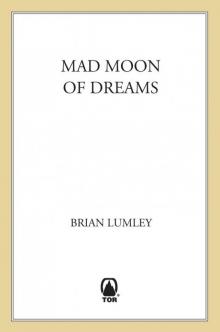 Mad Moon of Dreams
Mad Moon of Dreams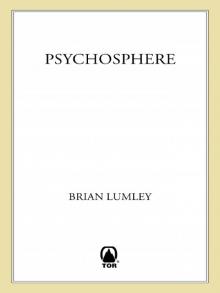 Psychosphere
Psychosphere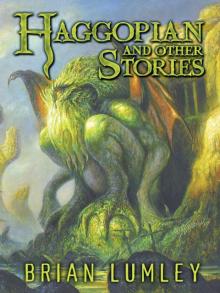 Haggopian and Other Stories
Haggopian and Other Stories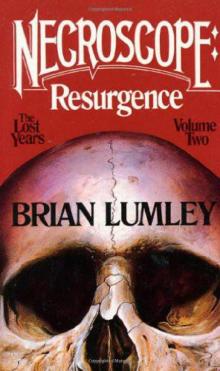 Resurgence_The Lost Years_Volume Two
Resurgence_The Lost Years_Volume Two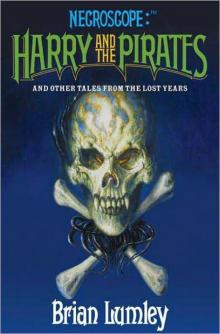 Necroscope: Harry and the Pirates: And Other Tales From the Lost Years
Necroscope: Harry and the Pirates: And Other Tales From the Lost Years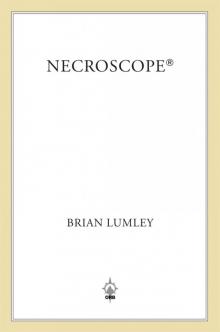 Necroscope®
Necroscope®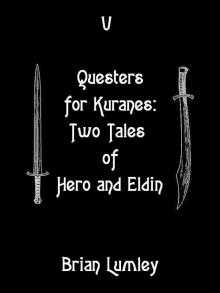 Dreamlands 5: Questers for Kuranes: Two Tales of Hero and Eldin
Dreamlands 5: Questers for Kuranes: Two Tales of Hero and Eldin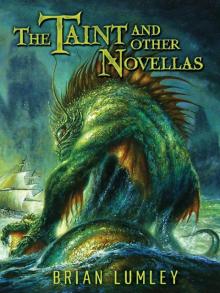 The Taint and Other Novellas: Best Mythos Tales Volume 1
The Taint and Other Novellas: Best Mythos Tales Volume 1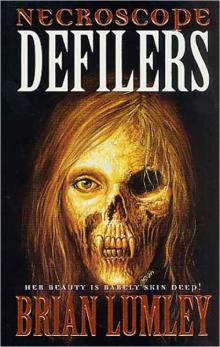 Necroscope: Defilers
Necroscope: Defilers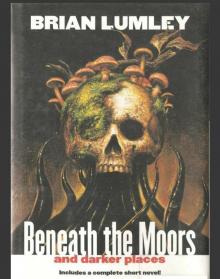 Beneath the Moors and Darker Places
Beneath the Moors and Darker Places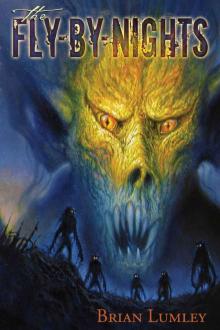 The Fly-By-Nights
The Fly-By-Nights Khai of Khem
Khai of Khem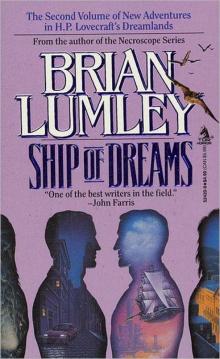 Ship of Dreams
Ship of Dreams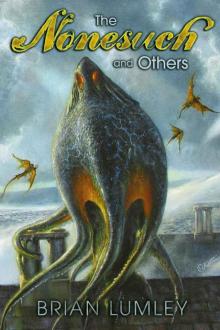 The Nonesuch and Others
The Nonesuch and Others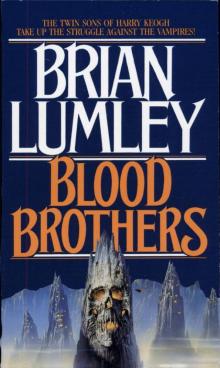 Blood Brothers
Blood Brothers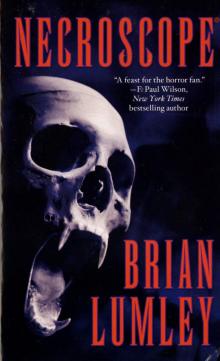 Necroscope
Necroscope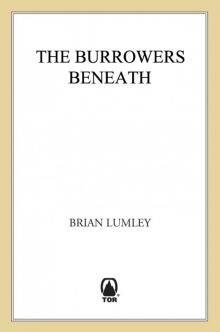 The Burrowers Beneath
The Burrowers Beneath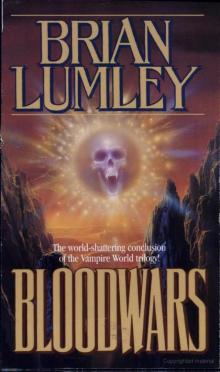 Bloodwars
Bloodwars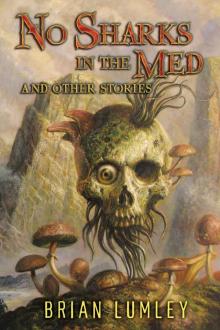 No Sharks in the Med and Other Stories
No Sharks in the Med and Other Stories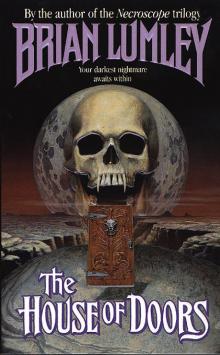 The House of Doors - 01
The House of Doors - 01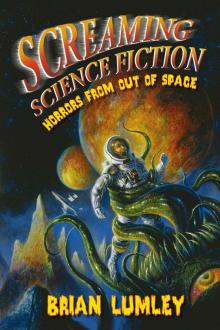 Screaming Science Fiction
Screaming Science Fiction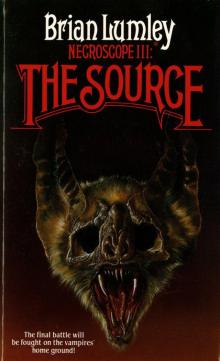 Necroscope III: The Source
Necroscope III: The Source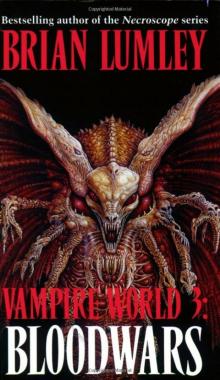 Vampire World I: Blood Brothers
Vampire World I: Blood Brothers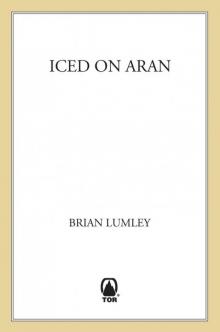 Iced on Aran
Iced on Aran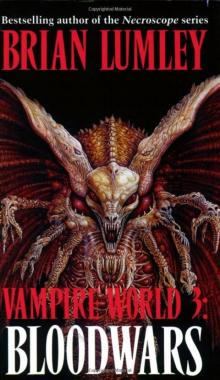 Necroscope: Invaders
Necroscope: Invaders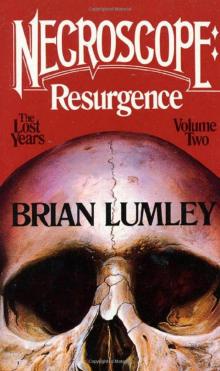 Necroscope: The Lost Years
Necroscope: The Lost Years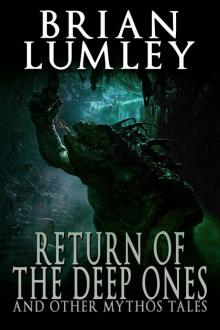 Return of the Deep Ones: And Other Mythos Tales
Return of the Deep Ones: And Other Mythos Tales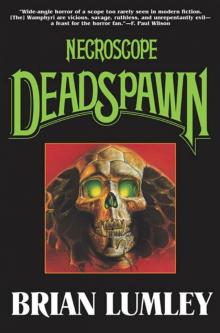 Necroscope V: Deadspawn
Necroscope V: Deadspawn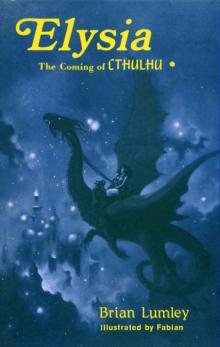 Titus Crow, Volume 3: In the Moons of Borea, Elysia
Titus Crow, Volume 3: In the Moons of Borea, Elysia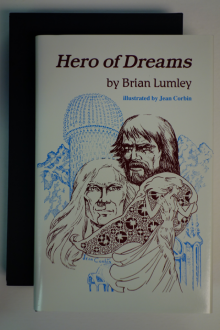 Hero of Dreams
Hero of Dreams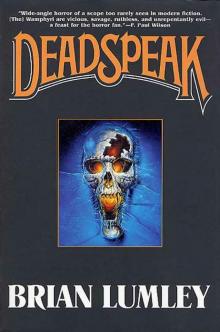 Necroscope IV: Deadspeak
Necroscope IV: Deadspeak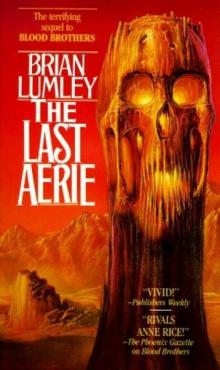 The Last Aerie
The Last Aerie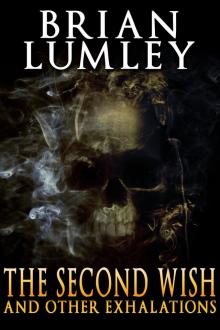 The Second Wish and Other Exhalations
The Second Wish and Other Exhalations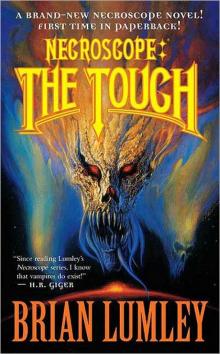 Necroscope: The Touch
Necroscope: The Touch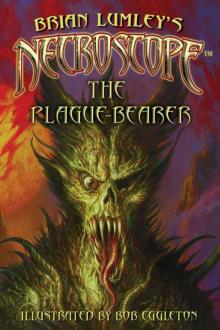 Necroscope: The Plague-Bearer
Necroscope: The Plague-Bearer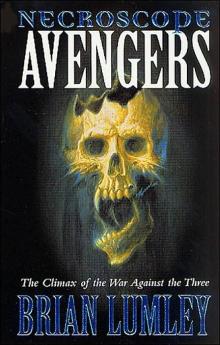 Necroscope: Avengers
Necroscope: Avengers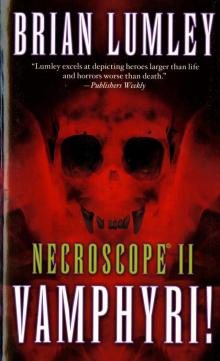 Necroscope II: Wamphyri
Necroscope II: Wamphyri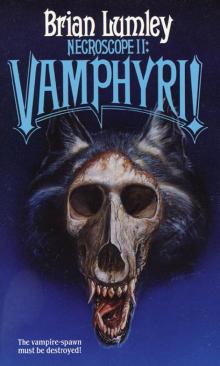 Necroscope II_Vamphyri!
Necroscope II_Vamphyri!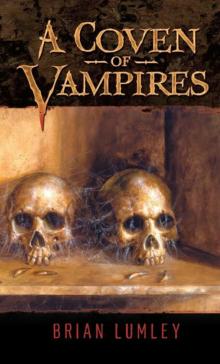 A Coven of Vampires
A Coven of Vampires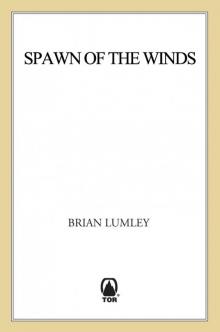 Spawn of the Winds
Spawn of the Winds Sorcery in Shad
Sorcery in Shad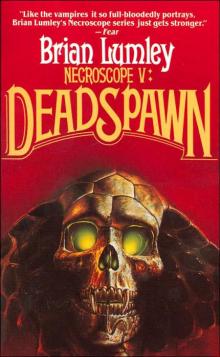 Deadspawn
Deadspawn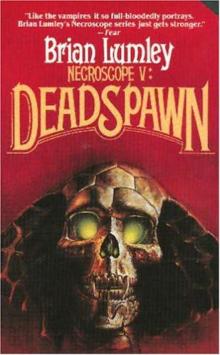 Necroscope V: Deadspawn n-5
Necroscope V: Deadspawn n-5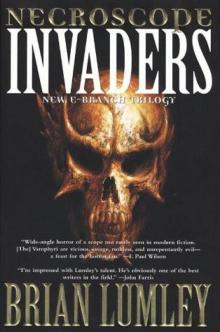 Necroscope: Invaders e-1
Necroscope: Invaders e-1![Beneath the Moors and Darker Places [SSC] Read online](http://i1.bookreadfree.com/i/03/20/beneath_the_moors_and_darker_places_ssc_preview.jpg) Beneath the Moors and Darker Places [SSC]
Beneath the Moors and Darker Places [SSC]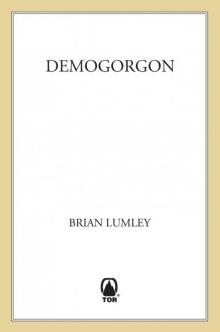 Demogorgon
Demogorgon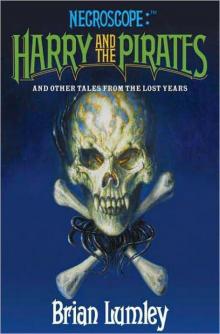 Harry and the Pirates_and Other Tales from the Lost Years
Harry and the Pirates_and Other Tales from the Lost Years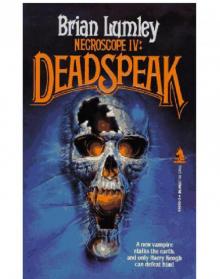 Necroscope IV: Deadspeak n-4
Necroscope IV: Deadspeak n-4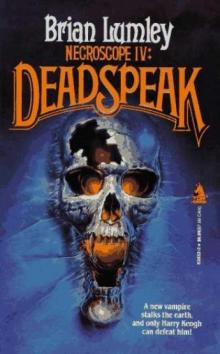 Deadspeak
Deadspeak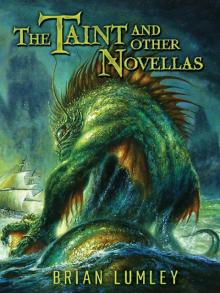 The Taint and Other Novellas
The Taint and Other Novellas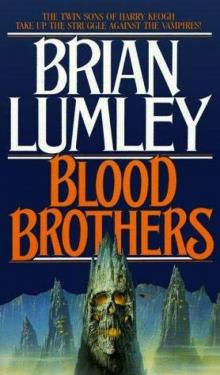 Blood Brothers vw-1
Blood Brothers vw-1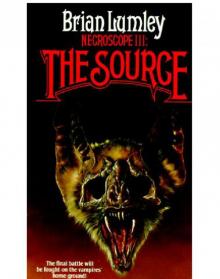 The Source n-3
The Source n-3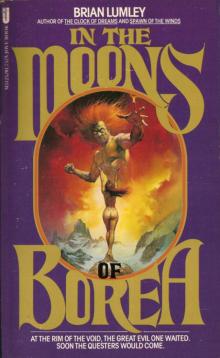 In the Moons of Borea
In the Moons of Borea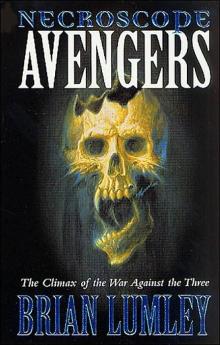 Avengers
Avengers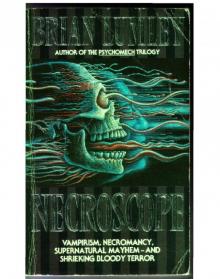 Necroscope n-1
Necroscope n-1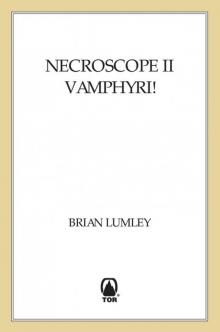 Vamphyri!
Vamphyri!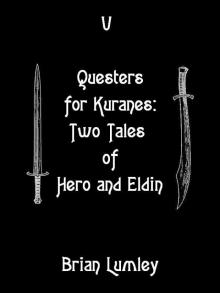 Questers for Kuranes: Two Tales of Hero and Eldin
Questers for Kuranes: Two Tales of Hero and Eldin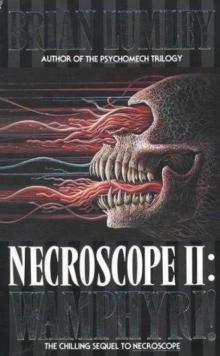 Necroscope II: Wamphyri! n-2
Necroscope II: Wamphyri! n-2 The Source
The Source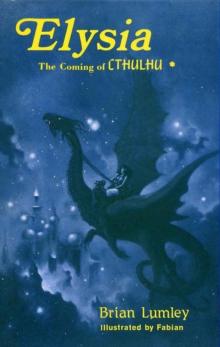 Elysia
Elysia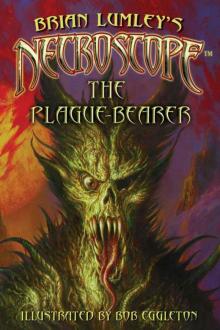 The Plague-Bearer
The Plague-Bearer The Touch
The Touch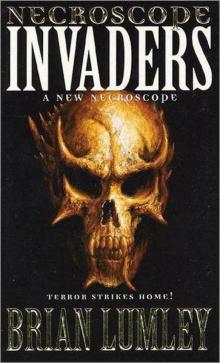 Invaders
Invaders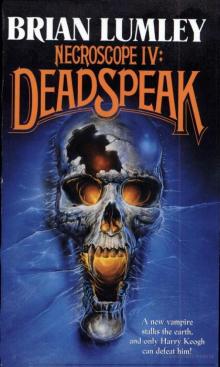 Necroscope 4: Deadspeak
Necroscope 4: Deadspeak Compleat Crow
Compleat Crow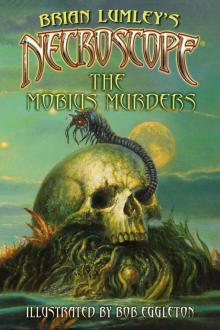 The Mobius Murders
The Mobius Murders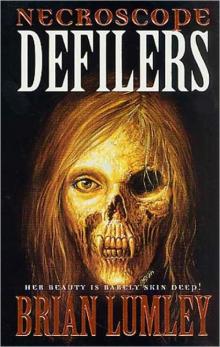 Defilers
Defilers